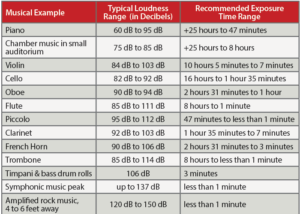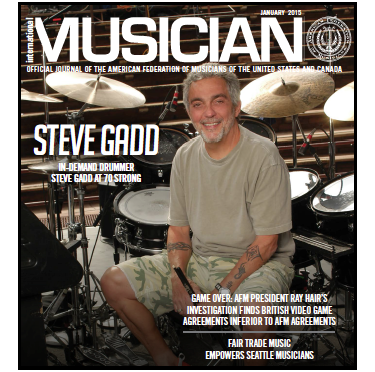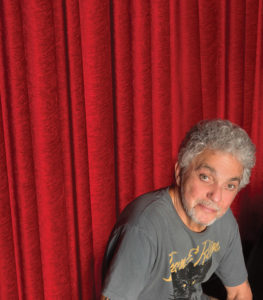Following a recent live music event, I interviewed a longtime musician who joked that his years of gigging have made it more difficult to carry on a normal conversation. I patiently repeated my questions, trying to speak in an abnormally loud voice. When I asked if he’d ever considered using musicians’ earplugs the man laughed at the absurdity of such an idea. Unfortunately, hearing loss really is no laughing matter, especially for musicians.
The auditory system is one of the body’s most delicate sensory systems, and when you are frequently exposed to excessive sound levels, the system can be easily damaged. Though many people associate musician hearing loss with rockers (20% of whom have some hearing loss according to one Norwegian Institutt for Klinisk Medisin study), any type of musician is at risk. Often, only when noticeable hearing loss has already occurred, do musicians take the problem seriously.
The National Institute for Occupational Safety and Health (NIOSH) sets guidelines for the maximum time you can safely be exposed to various sound pressures measured in decibels (dB). Below is a table with approximate ranges of safe exposure for various instruments.
As you can see from the table, the dangers are real and occur with a wide range of instruments and genres of music. Following are some tips to reduce the danger of hearing loss.
- Purchase and wear musicians’ earplugs. They are superior to traditional earplugs because they offer “flat” attenuation, while traditional earplugs tend to filter more sound from higher frequencies, resulting in a muffled sound.
- As you can see from the table, each instrument has a wide volume range. When possible, practice more softly, or play your electrified instrument “unplugged.”
- To reduce your overall exposure to sound, take precautions in your daily life. Avoid any environment where you need to raise your voice to be heard. Wear earplugs or earmuffs when mowing the lawn or operating other loud machinery, and turn down the volume on your television and iPod.
- During rehearsals take frequent, 15-minute silence breaks.
- When you have a break during your gig, take a moment to step outside and give your ears a rest.
- Spread out so you are not being blasted by the musician next to you. Also, move away from on-stage monitors and amplifiers.
For more information on musician hearing loss and additional tips visit House Research Institute at www.hei.org or Hearing Education and Awareness for Rockers (HEAR) at www.hearnet.com.





